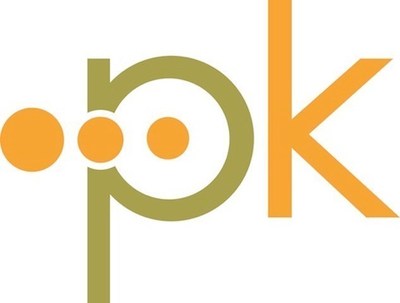LOS ANGELES, June 10, 2015 /PRNewswire/ -- Pharmaco-Kinesis Corporation (PKC) announced today that Robert A. Salata, MD has accepted an appointment as Chairman of its Infectious Diseases Clinical Advisory Board (IDCAB). Dr. Salata will chair a world-renowned team of infectious disease thought leaders that will provide medical guidance and insight into pathogen detection by the Company’s revolutionary analog circuit, carbon nanotube biosensor (ACARBTM). The IDCAB’s input will help PKC prioritize its development efforts in pathogen detection and assure a rapid progression of ACARBTM onto the commercial markets. PKC is the recipient of prestigious Frost & Sullivan awards for New Product Innovation in 2013 and Best Practices in 2014.

Dr. Salata is the Executive Vice Chair of the Department of Medicine and Division Chief of Infectious Diseases and HIV Medicine, University Hospitals Case Medical Center (UHCMC) in Cleveland, OH, and effective July 1, 2015 will become Interim Chair of Medicine at UHCMC. In addition, Dr. Salata is Professor of Medicine, International Health, and Biostatistics and Epidemiology at Case Western Reserve University’s School of Medicine. Dr. Salata, a graduate of the Case Western Reserve University School of Medicine, furthered his medical education with an internal medicine residency at University Hospitals Case Medical Center, followed by a Fellowship in the Divisions of Infectious Diseases and Geographic Medicine at University Hospital of Virginia in Charlottesville. His medical interests include infectious diseases, HIV medicine, transplant infections, sepsis, travelers’ medicine, nosocomial infections and orthopaedic infections.
Electrochemical impedance spectroscopy (EIS) is a sensitive technique well suited to investigate and characterize biological events occurring at the interface of conductive surfaces and liquid solutions, such as bacterial growth media, cerebrospinal fluid, serum, and plasma. EIS combines the benefits of high sensitivity, cost-effectiveness, label-free reading, rapid response, and real-time monitoring of samples in sharp contrast to conventional technologies such as PCR and ELISA. PKC’s innovative ACARBTM platform implements interdigitated microelectrodes to measure the impedance of the solution containing a test sample. The surface of the electrode is coated with receptors that have high binding specificity towards a sample analyte of interest, such as pathogenic bacteria. When the sensor is exposed to the target pathogen, the target pathogen is selectively captured by the immobilized receptors causing a noticeable change in the measured impedance. The change in impedance directly correlates to the amount of target pathogen bound to the sensor surface, allowing the technology to perform both qualitative and quantitative analysis.
Dr. Salata likewise chairs the Infectious Disease Clinical Working Group of the Ohio Clinical Trials Collaborative (OCTC) with whom PKC established a relationship for access to the state of Ohio’s extensive research and medical expertise for the development of its products. Said Dr. John Peterson, OCTC Executive Director, “Through his extensive connections within the infectious diseases community in both developing countries and the western world, Dr. Salata will draw together a global team of esteemed researchers and clinicians to this endeavor. A number of these thought leaders are members of the OCTC’s Infectious Disease Clinical Working Group which will allow the IDCAB to quickly come to fruition and hold its first meeting.”
Today’s gold standard procedure for detection and identification of a pathogenic organism in an infected human involves plating a culture from the patient and characterizing the pathogenic organism causing the illness. This procedure, which hasn’t advanced significantly in over 40 years, can take 3-4 days of time before sufficient growth of the organism occurs and a confirmatory diagnosis can be accurately made. With acutely ill patients in particular, such as those suffering from sepsis, the physician therefore has little option but to administer a spectrum of 3-5 anti-infective agents simultaneously into the patient to combat the undiagnosed cause of the illness. Only after the pathogen has been identified can the physician safely tailor the medication protocol back to treat the specific pathogenic organism that is infecting the patient. PKC’s ACARBTM is expected to deliver never before seen diagnostic capabilities at the patient’s bedside that will allow the infectious diseases physician to make a rapid diagnosis of the microorganism causing the infection. Moreover, the multiplexing capabilities of this technology are well suited to measuring panels of disease pathogens simultaneously.
Another equally important commercial opportunity for PKC’s ACARBTM is in foodborne pathogen monitoring. PKC recently entered into a pre-commercial agreement with a major public firm that currently conducts electronic surveillance and monitoring in over 100,000 restaurants and grocery stores worldwide. Foodborne disease continues to be an important problem, yet such illnesses are preventable. In 2013, a total of 19,056 infections, 4,200 hospitalizations, and 80 deaths were reported in the USA alone. The top five foodborne pathogen incidences per 100,000 population in the USA in 2013 were Salmonella, Campylobacter, Shigella, Cryptosporidium and Shiga toxinproducing E. coli. The IDCAB will further provide guidance into this effort.
Said Frank Adell, CEO of PKC, “We have been engaged in the development of the ACARBTM technology platform since 2010, and recently announced a new, three-dimensional biological field effect transistor (BioFET) of ACARBTM that solves how to reliably measure the degree and time sequencing of a plurality of disease biomarkers. This rich pipeline of patented technology uniquely positions PKC to make a significant impact into human and foodborne pathogen detection. We are truly honored and grateful to have Dr. Salata’s leadership behind our IDCAB. The global population rose from about 1.6 billion in 1900 to over 6 billion in 2000. In March 2015, the global population topped 7 billion people and the experts now forecast the global population could exceed 11 billion people by 2100. Many in the medical community anticipate a parallel increased incidence of infectious diseases as the global population rises, in part caused by the growing numbers of multidrug resistant pathogens that have evolved over time. I believe the current technology has reached its useful limit, and we now face an inflection point. By that, I mean, the amount of money required to combat infectious diseases by the current technology could become economically untenable on a global scale. Whenever a process reaches an inflection point in the past, a solution was found. PKC’s ABARBTM nano-impedance biosensor will address this inflection point by (a) significantly reducing the low times and high cost of pathogen detection and identification by today’s test methods, (b) by providing physicians with a tool that allows real-time diagnosis in their office or patient’s bedside so as to both optimize and streamline therapeutic treatment and minimize hospital stays, and (c) by limiting future disease outbreaks from foodborne pathogens by identifying contaminated foods before ingestion. The ACARBTM capability to link test data to the cloud in combination with PKC’s propriety algorithms will help patients, physicians, the global healthcare system, and the food industry run with much higher efficiency, something that is desperately lacking today. Through the invaluable leadership of Dr. Salata and the key-opinion members he will bring to our IDCAB, PKC will make rapid progress in commercializing ACARBTM for human infectious disease and foodborne pathogen detection both on a domestic and global scale. Through this endeavor PKC seeks to transform medical practice away from reactive medicine to proactive intervention and prevention through real time, continuous cloud-linked bio-monitoring and diagnosis.”
About Pharmaco-Kinesis Corporation
PKC is a pre-commercial stage, high technology medical device company that aims to optimize healing of the human body through proprietary local Smart Drug Delivery Systems (SDDS) and associated advanced devices to measure biological responses. Its novel carbon nanotube biosensor platform culminated in PKC winning the prestigious Frost & Sullivan Award in both 2013 and 2014. For more information, please go to http://www.pharmaco-kinesis.com/.
Forward-Looking Statements
This news release contains “forward-looking statements” within the meaning of the safe harbor provisions of the United States Private Securities Litigation Reform Act of 1995. Such statements are based upon the current beliefs and expectations of the management of Pharmaco-Kinesis Corporation and are subject to significant risks and uncertainties. Actual results may differ materially from those set forth in the forward-looking statements. The company undertakes no obligation to publicly update any forward-looking statement, whether as a result of new information, future events or otherwise.
Media Contact:
Tony TerBorg
Pharmaco-Kinesis Corporation
310-641-2700
Email
Logo - http://photos.prnewswire.com/prnh/20150609/221891LOGO
To view the original version on PR Newswire, visit:http://www.prnewswire.com/news-releases/robert-a-salata-md-to-chair-pharmaco-kinesis-corporations-infectious-diseases-clinical-advisory-board-300096913.html
SOURCE Pharmaco-Kinesis Corporation
 Help employers find you! Check out all the jobs and post your resume.
Help employers find you! Check out all the jobs and post your resume.




